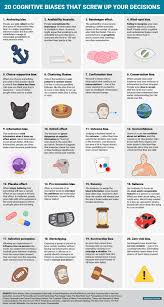Career Decisions: Making the Right Choices for Your Future
Choosing a career path is one of the most important decisions you will make in your life. Your career not only impacts your financial stability but also plays a significant role in your overall happiness and fulfillment. Making informed career decisions is crucial to ensuring a successful and satisfying professional life.
Assess Your Interests and Skills
Before making any career decisions, take the time to assess your interests, skills, and values. Consider what activities you enjoy doing, what subjects you excel in, and what values are important to you. Understanding yourself better will help you identify potential career paths that align with your strengths and passions.
Research Career Options
Once you have a good understanding of your interests and skills, research different career options that match your profile. Explore various industries, job roles, and companies to get a sense of what opportunities are available. Consider factors such as job outlook, salary potential, work-life balance, and growth opportunities.
Seek Guidance
Don’t hesitate to seek guidance from career counselors, mentors, or professionals in fields that interest you. They can provide valuable insights into different careers, share their experiences, and offer advice on how to navigate the job market successfully. Networking with industry professionals can also open doors to new opportunities.
Evaluate Your Options
After gathering information about various career options, evaluate each option based on how well it aligns with your interests, skills, values, and long-term goals. Consider the pros and cons of each choice and weigh them against each other to determine which path is the best fit for you.
Make a Decision
Once you have thoroughly researched your options and considered all factors involved, it’s time to make a decision. Trust your instincts but also rely on the information you have gathered throughout the decision-making process. Remember that no decision is set in stone; it’s okay to change course if needed.
Take Action
After making a decision about your career path, take action towards achieving your goals. Update your resume, apply for relevant job opportunities or educational programs, and continue learning and growing in your chosen field. Stay proactive in pursuing opportunities that align with your career aspirations.
In conclusion, making informed career decisions is essential for building a successful and fulfilling professional life. By assessing your interests and skills, researching options, seeking guidance from others, evaluating choices carefully, making a decision confidently,and taking action towards your goals,you can set yourself up for success in the ever-evolving world of work.
5 Benefits of Thoughtful Career Decisions: Passion, Satisfaction, Stability, Growth, and Empowerment
- Career decisions allow you to pursue your passions and interests, leading to a more fulfilling professional life.
- Choosing the right career path can result in greater job satisfaction and overall happiness in your day-to-day work.
- Well-thought-out career decisions can lead to financial stability and long-term success in your chosen field.
- Making informed career decisions opens up opportunities for personal growth, skill development, and advancement within your industry.
- Career decisions empower you to take control of your future and shape a career that aligns with your values, goals, and aspirations.
Navigating Career Choices: Addressing Common Challenges and Pitfalls
- Uncertainty about the future job market and industry trends may lead to anxiety and indecision.
- Choosing a career based solely on financial gain may result in dissatisfaction and lack of fulfillment.
- Changing career paths later in life can be challenging and require additional time, effort, and resources.
- Incorrectly assessing one’s interests or skills may lead to choosing a career that is not a good fit, resulting in unhappiness and underperformance.
Career decisions allow you to pursue your passions and interests, leading to a more fulfilling professional life.
Making career decisions empowers you to follow your passions and interests, ultimately paving the way for a more fulfilling professional journey. By aligning your career path with what truly excites and motivates you, you are more likely to find satisfaction and joy in your work. Pursuing your passions in your career not only enhances your job performance but also boosts your overall well-being and sense of fulfillment. When you choose a career that resonates with your interests, every day at work becomes an opportunity to grow, learn, and thrive in a field that brings you genuine happiness.
Choosing the right career path can result in greater job satisfaction and overall happiness in your day-to-day work.
Choosing the right career path can lead to greater job satisfaction and overall happiness in your day-to-day work. When you are engaged in a career that aligns with your interests, skills, and values, you are more likely to feel fulfilled and motivated in your professional life. Enjoying the work you do can have a positive impact on your mental well-being, productivity, and overall quality of life. By making informed career decisions that resonate with who you are and what you aspire to achieve, you can create a fulfilling and rewarding career that brings joy and satisfaction each day.
Well-thought-out career decisions can lead to financial stability and long-term success in your chosen field.
Well-thought-out career decisions have the potential to pave the way for financial stability and long-term success in your chosen field. By carefully considering your interests, skills, and goals when making career choices, you can align yourself with opportunities that offer not only monetary rewards but also personal fulfillment. Making informed decisions about your career path can lead to increased job satisfaction, higher earning potential, and a greater sense of security in your professional life. By investing time and effort into planning your career trajectory, you can set yourself up for a prosperous and rewarding future.
Making informed career decisions opens up opportunities for personal growth, skill development, and advancement within your industry.
Making informed career decisions can be a catalyst for personal growth, skill development, and advancement within your industry. By carefully considering your options and aligning your career path with your interests and strengths, you set yourself up for opportunities to expand your knowledge, hone your skills, and progress in your chosen field. Making proactive decisions about your career not only leads to professional success but also fosters continuous learning and self-improvement, ultimately positioning you for long-term growth and advancement within your industry.
Career decisions empower you to take control of your future and shape a career that aligns with your values, goals, and aspirations.
Making career decisions empowers you to seize control of your future and mold a career that resonates with your values, ambitions, and aspirations. By actively choosing a career path that aligns with who you are and what you strive to achieve, you set the stage for a fulfilling and purpose-driven professional journey. Your career decisions serve as a compass guiding you towards opportunities that not only support your goals but also reflect your core beliefs and desires. Embracing the power of career decisions allows you to shape a path that is uniquely yours, paving the way for personal growth, success, and satisfaction in the workplace.
Uncertainty about the future job market and industry trends may lead to anxiety and indecision.
One significant con of making career decisions is the uncertainty surrounding the future job market and industry trends. This ambiguity can create anxiety and indecision for individuals as they try to navigate their career paths. Not knowing what opportunities will be available in the future or how industries may evolve can make it challenging to make confident decisions about one’s professional future. The fear of choosing a career that may become obsolete or face limited growth potential can weigh heavily on individuals, causing them to second-guess their choices and delay making important career decisions.
Choosing a career based solely on financial gain may result in dissatisfaction and lack of fulfillment.
When individuals choose a career solely for financial gain, they may find themselves facing dissatisfaction and a lack of fulfillment in the long run. While a high-paying job may provide financial security, it may not necessarily align with one’s interests, passions, or values. Without a sense of purpose and personal satisfaction derived from their work, individuals may feel unfulfilled and unhappy despite their financial success. It is important to consider factors beyond monetary compensation when making career decisions to ensure that one’s professional path brings both financial stability and personal fulfillment.
Changing career paths later in life can be challenging and require additional time, effort, and resources.
One significant con of career decisions is the challenge of changing career paths later in life. Transitioning to a new career can be daunting and may require additional time, effort, and resources to acquire the necessary skills and experience. This process can be particularly challenging for individuals who have already established themselves in their current field or have financial obligations that limit their flexibility. Changing career paths later in life often involves stepping out of one’s comfort zone and facing uncertainties, making it a difficult decision that requires careful consideration and planning.
Incorrectly assessing one’s interests or skills may lead to choosing a career that is not a good fit, resulting in unhappiness and underperformance.
Incorrectly assessing one’s interests or skills when making career decisions can have detrimental consequences. Choosing a career that is not aligned with one’s true passions and abilities may lead to unhappiness, lack of fulfillment, and underperformance in the workplace. When individuals pursue a career that is not a good fit for them, they may struggle to excel in their roles, feel unfulfilled in their daily work, and experience a sense of disconnect from their professional lives. It is crucial to accurately assess one’s interests and skills to ensure that the chosen career path aligns with personal strengths and aspirations, ultimately leading to a more satisfying and successful professional journey.




